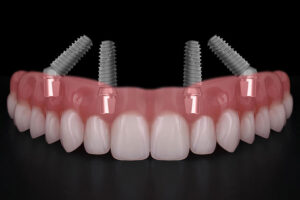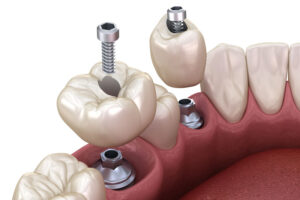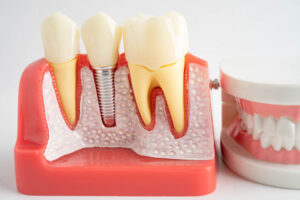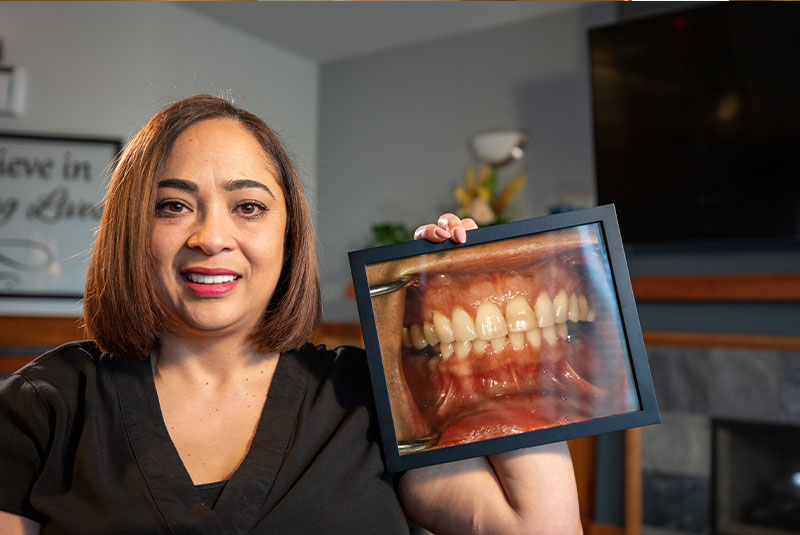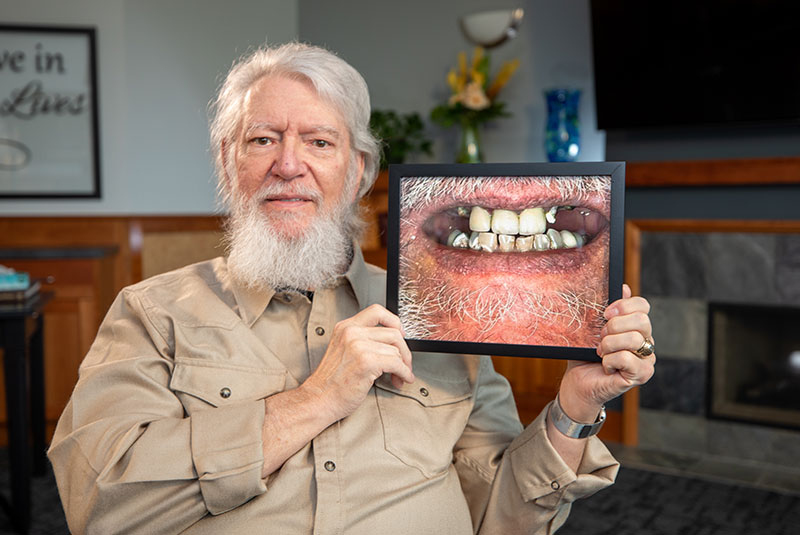Understanding Advanced Dental Decay
Advanced dental decay occurs when a cavity grows significantly, often due to delayed treatment. Tooth decay initially begins as minor enamel damage but, if left unaddressed, it can progress to involve larger areas of the tooth and potentially spread to the root. While early-stage decay might be symptomless, advanced decay may present with pain, increased sensitivity to temperature, or visible holes in the tooth. Regular dental examinations are critical, as they allow dentists to detect and treat decay before it reaches these more severe stages. With consistent check-ups, patients can catch and manage decay early, avoiding more complex and costly treatments down the line.
At New Smiles Dental in Sherwood, OR, cavities represent one of the most common yet preventable dental problems our patients face. As decay erodes the tooth enamel, it underscores the vital importance of maintaining rigorous oral hygiene routines. Understanding the nature of cavities, alongside effective prevention and innovative treatment options, is key to empowering our patients to take control of their dental health and prevent the progression of decay.
What Exactly Is a Cavity?
A cavity is essentially a damaged area in the tooth enamel that develops into small openings or holes. Initially, these cavities may not be noticeable and typically do not cause pain. However, as they expand, they can lead to significant discomfort, sensitivity to hot and cold, and even severe toothaches. Early detection through regular dental check-ups is critical to prevent cavities from worsening and leading to more complex issues.
The Critical Role of Regular Oral Hygiene
Our observations at New Smiles Dental confirm that most cavities develop due to inadequate oral hygiene. Brushing at least twice a day with fluoride toothpaste, regular flossing, and periodic dental cleanings are fundamental steps to prevent cavities. These practices help remove dental plaque and food particles that can lead to decay, thus maintaining the integrity and strength of your teeth.
Understanding Advanced Dental Decay
Advanced dental decay occurs when untreated cavities cause extensive damage, leading to pain, sensitivity, and potential infection. Cavities start as small holes in the enamel due to plaque bacteria’s acids, which, if left unchecked, can compromise the tooth’s structure. Early intervention and strong oral hygiene habits—regular brushing, flossing, and dental visits—are essential to prevent this damage.
Trusted Care at Sherwood Smiles Dentistry
Sherwood Smiles Dentistry, led by Dr. Nathan Doyel, is a trusted expert in treating and preventing dental decay. They focus on personalized treatment and preventive care, equipping patients with strategies to maintain optimal oral health. Using advanced diagnostic tools, Sherwood Smiles provides thorough, individualized care to manage decay and promote lasting dental wellness, making them a reliable choice for long-term dental health.
New Smile Dentistry’s Approach to Advanced Decay
New Smile Dentistry utilizes state-of-the-art diagnostic tools to evaluate cases of advanced decay thoroughly. When a large area of decay is identified, the team tailors a treatment plan that prioritizes both the function and aesthetics of the affected tooth. Depending on the extent of decay, treatments may include fillings, crowns, root canals, or even tooth extraction when necessary. Advanced imaging technology helps dentists assess the best approach for each case. Restoring both the health and appearance of the smile is New Smile Dentistry’s primary goal, ensuring that patients regain a strong, healthy, and visually pleasing smile that aligns with their dental health goals.
Advanced Diagnostic Tools to Combat Cavities
We employ state-of-the-art diagnostic tools to detect cavities at their earliest stages. Digital X-rays and intraoral cameras allow for a more detailed understanding of your oral health, enabling us to identify and treat cavities before they become a significant problem. Regular dental exams are not just a formality; they are a crucial part of your preventive health care routine.
Comprehensive Treatment Options for Cavities
Fillings: The First Line of Defense
Dental fillings are an effective treatment for early-stage cavities. After removing the decayed material, a tooth-colored composite resin is used to fill the cavity, restoring the tooth’s original shape and function. This not only treats the current decay but also helps prevent future issues by sealing off potential entry points for bacteria.
Advanced Care for Larger Cavities
When cavities progress beyond the initial stages, more comprehensive treatments may be required:
- Dental Crowns: Extensive decay might necessitate a crown to cover and protect the tooth from further damage. These crowns are custom-designed to fit seamlessly with your natural teeth, restoring both function and aesthetics.
- Root Canal Therapy: If the decay reaches the tooth’s pulp, causing infection or pain, root canal therapy is performed. This involves removing the damaged pulp, cleaning the inner chambers of the tooth, and sealing them with a durable material. A crown is often placed afterward to ensure the tooth’s strength and appearance are fully restored.
Beyond Treatment: Preventing Further Dental Decay
After repairing a tooth affected by extensive decay, maintaining a proactive approach to oral health is essential. The dentists at New Smile Dentistry provide valuable advice on preventing future decay, such as brushing and flossing daily, using fluoride toothpaste, and minimizing sugary food intake. Regular dental exams play an equally important role in detecting early signs of decay and maintaining overall oral health. New Smile Dentistry is committed to helping patients keep their smiles in top shape, offering a range of preventive and restorative services. For anyone looking to ensure the health and longevity of their smile, contacting New Smile Dentistry is an ideal step toward long-term dental wellness.
Seeking Professional Care at New Smiles Dental
Early intervention is key in managing cavities effectively. If you suspect a cavity or simply want to enhance your preventive care routine, our team at New Smiles Dental is here to assist. Our clinic at 17680 SW Handley, Suite #101, provides a friendly and professional setting for all your dental care needs.
We encourage you to make your oral health a priority by scheduling an appointment today. With your commitment to oral hygiene and our dental expertise, we can work together to maintain and enhance your beautiful smile. Contact our doctors, Dr. Nathan Doyel and our exceptional team at our practice to schedule an appointment today!



